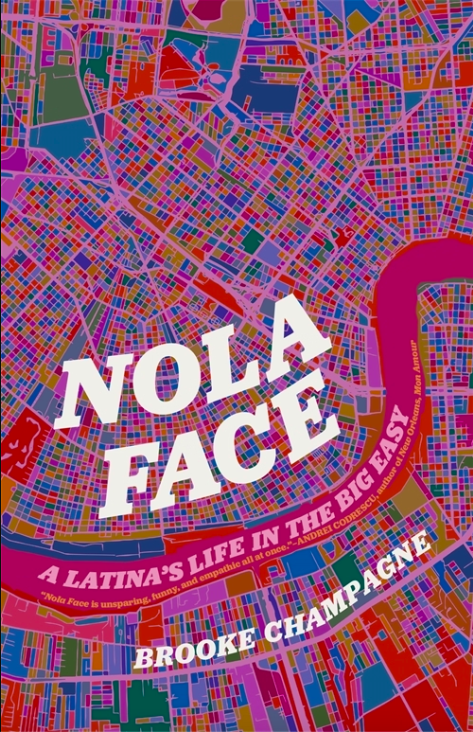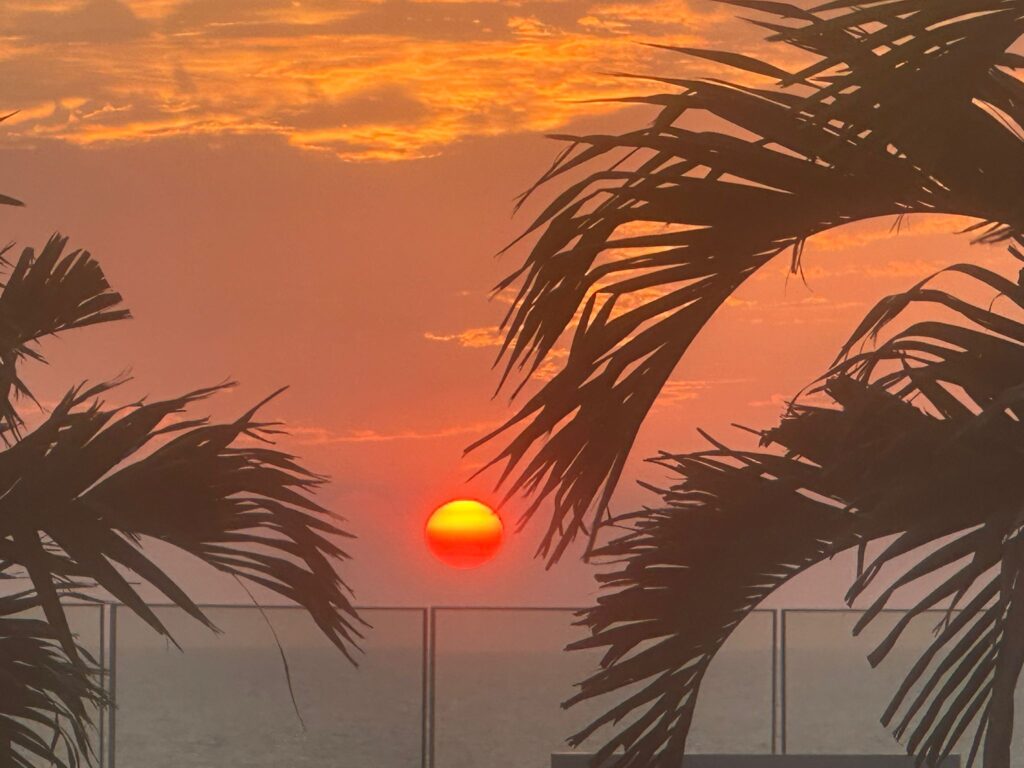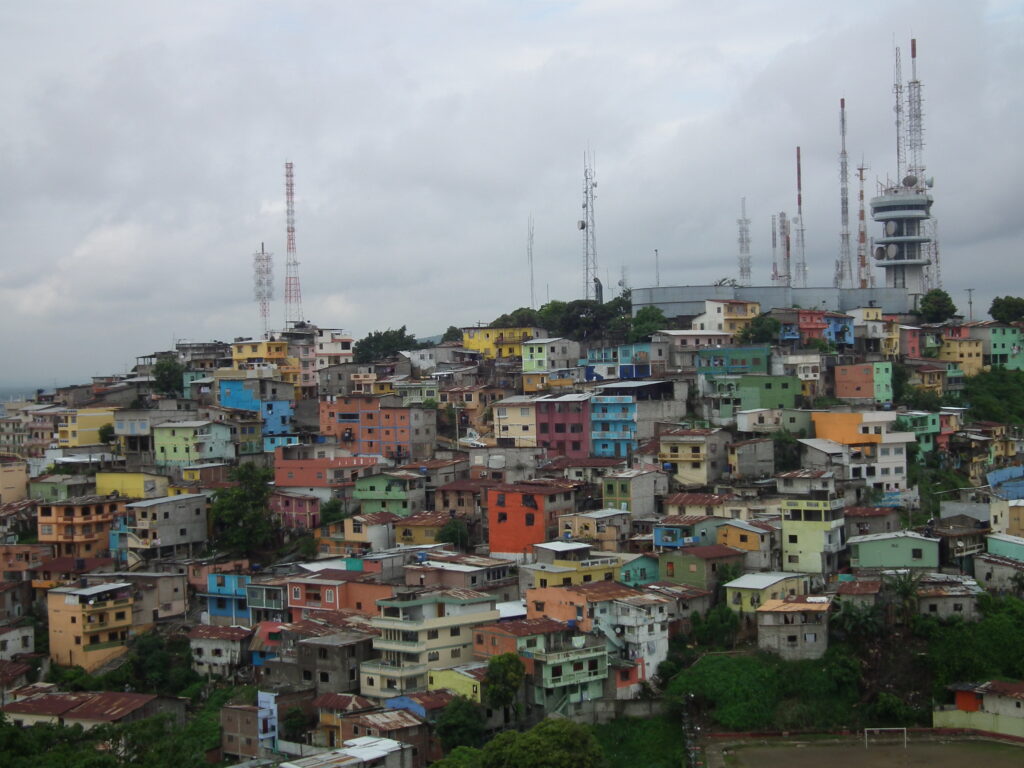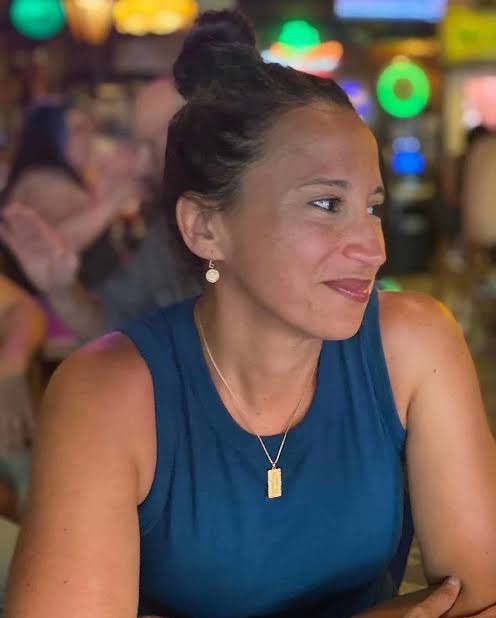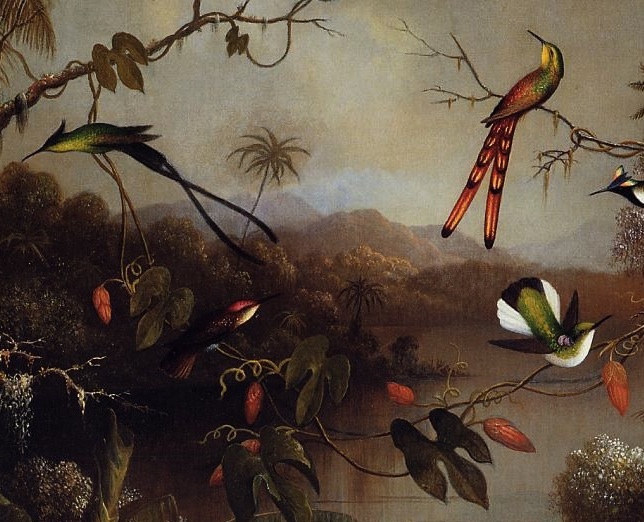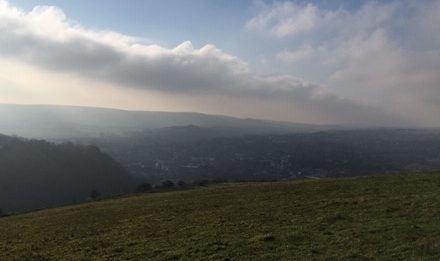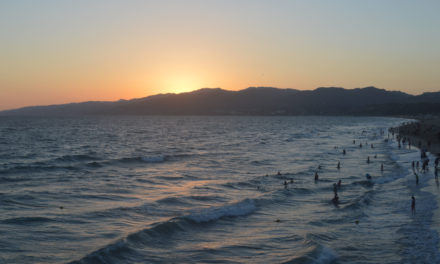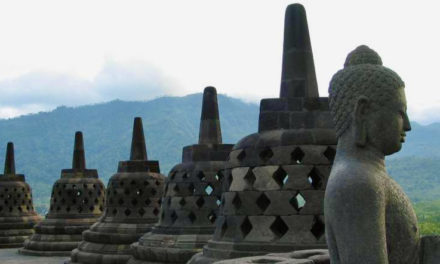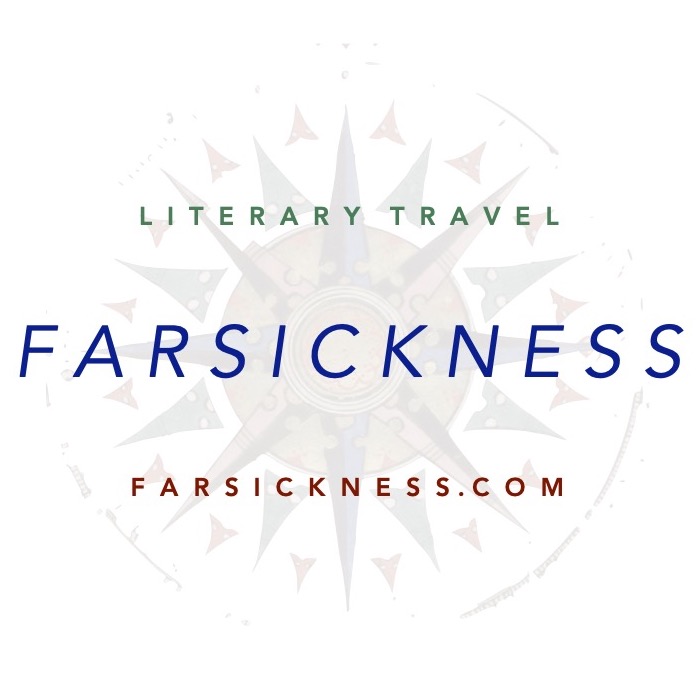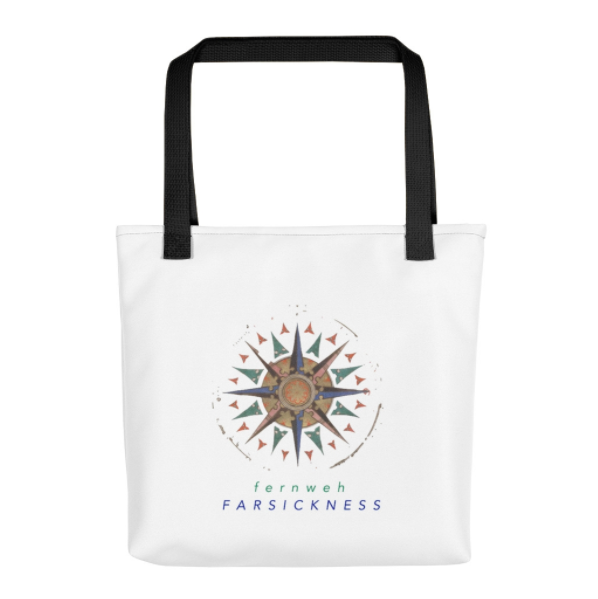View of Quito, Ecuador, and the Andes. [Credit: David Berkowitz via Creative Commons.]
Four Questions on Farsickness is an interview series with creative writers for whom place is essential to their work. Each writer answers the same four questions—and featured here is award-winning creative nonfiction writer Brooke Champagne, whose debut memoir-in-essays, Nola Face: A Latina’s Life in the Big Easy, is just out from the University of Georgia Press (April 2024).
1. Share a little about where you’re from. When you were growing up, what place—real or imagined—most fascinated you, and why?
I was born and raised in New Orleans, but not the cool-Mardi-Gras-partying parts that bloom in your imagination. (That said, Mardi Gras is celebrated in every last corner of Nola, and I’ve spent much of my life in walking distance from one parade route or another.) We lived on the outskirts of the city, in the suburbs, and it was a place made magical by both its endemic magic and by my Ecuadorian grandmother, Lala, who I write about a lot in my memoir-in-essays, Nola Face. She’d whisk me away in the middle of the night to the French Quarter for beignets, but even routine trips to the grocery store were extraordinary with her. And not just because she regularly stole and required that I lie about it.
I wish I could say I was always enthralled by my motherland, Ecuador, or some other far-off exotic region. Well, forgive me for sounding like Huck Finn, but growing up, sometime in grammar school when the prospect of learning and academic success gained some quiet, internal traction, I was fascinated with the amorphous concept of The North. As in, the northern part of the United States. Of course I had no idea what that meant. My family vacationed in Poplarville, Mississippi or, if we were lucky, Gulf Shores. We drove (and not too far) to wherever we needed to go. “The North,” for me, was any place that got snow in the winter and had colleges with secret societies, bell towers, and buildings made of ivy for some reason. Basically, it was a place where smart people were from, and I wanted to live amongst them. I was from the South, ruled, I believed, by the dumb. But “The North” of my mind was certainly imagined, as I learned when I met my Ohioan husband, who assured me “there’s stupid everywhere.”
2. What travel has been a particular inspiration to your work?
I’ve visited Cuba several times for research and to lead a Study Abroad course, and it’s a beautiful country with some of the most generous, hopeful, indefatigable people I’ve ever met. But probably what most inspires me when I visit—for totally selfish reasons—is the language. It’s the only Spanish-speaking country I’ve spent much time in, and when I’m there I have no choice but to re-immerse. Technically I learned Spanish concurrently with English, but the only person I ever really spoke with was Lala. Since she passed, I never get an opportunity to speak it, so going to Cuba always means this reconnection to my past linguistic self. It’s weird, and lovely, and has definitely influenced my thinking on the many ways we communicate (and miscommunicate).
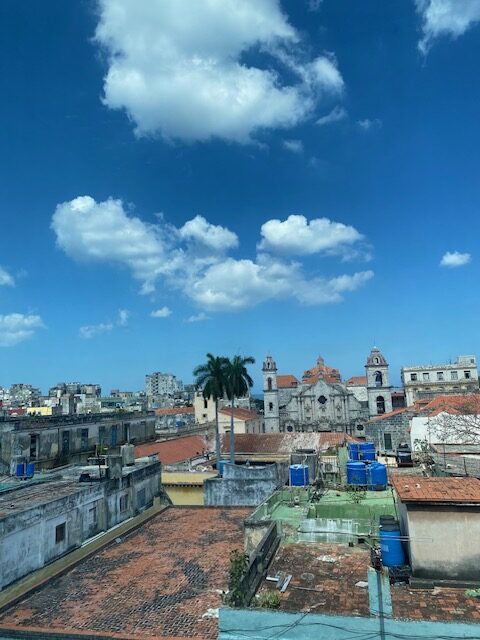
View of Old Havana from Colegio de San Gerónimo, where Champagne has collaborated with Cuban students and University of Alabama students on writing and research projects.
3. Where do you “escape to” to recharge creativity?
I don’t have a singular place away from home that is a go-to for creative energy. Though I do have a home office that is my space alone, and in a family of 4.5, that’s a precious hundred square feet used not only for writing but for staring out the window at the squirrels my dog will never catch (our dog, Basil, is the .5). My daily runs through my neighborhood are a somewhat meditative practice that serves as a palette cleanser when my brain fails to work (I repeat: daily). If I’m stuck in the writing, I run. It hardly ever directly solves the writing problem, but afterward I’m too tired to stay too neurotic about it.
4. Where would you most like to travel to next?
I’d most like to visit Ecuador with my mother. (I plan to take my husband and kids later, but Mom and I go first.) I still have distant family there and it would just be kind of unbelievable to visit the place of my mother’s birth, my grandmother’s, my many forebears through the generations. One of my friends studied in Quito years ago and said it was strange, how many people looked like me; she thought she saw me everywhere. I want to experience that combo of strangeness and familiarity for myself.
Brooke Champagne is the author of Nola Face: A Latina’s Life in the Big Easy, published with the Crux Series in Literary Nonfiction at the University of Georgia Press. Her work has been selected as Notable in several editions of the Best American Essays anthology series, and she is the recipient of the 2023-2024 Alabama State Council on the Arts Literary Fellowship in Prose. She lives with her husband and children in Tuscaloosa, where she is Assistant Professor of Creative Writing in the MFA Program at the University of Alabama.


